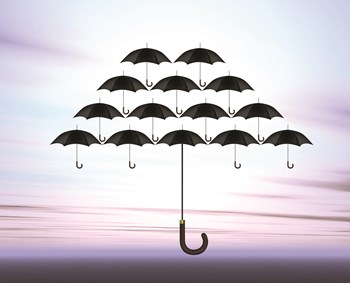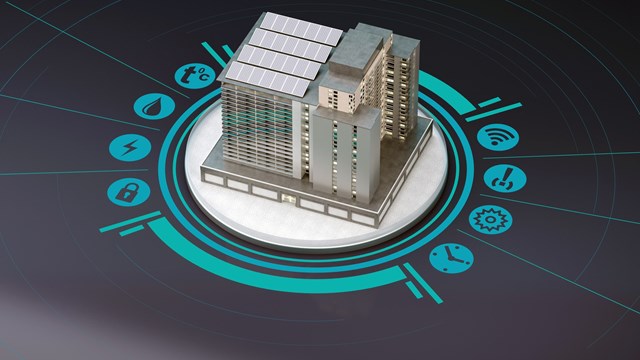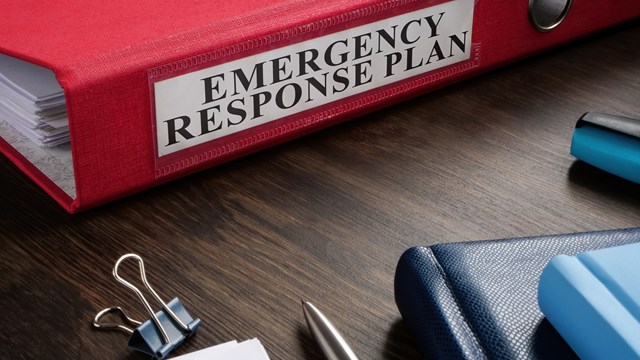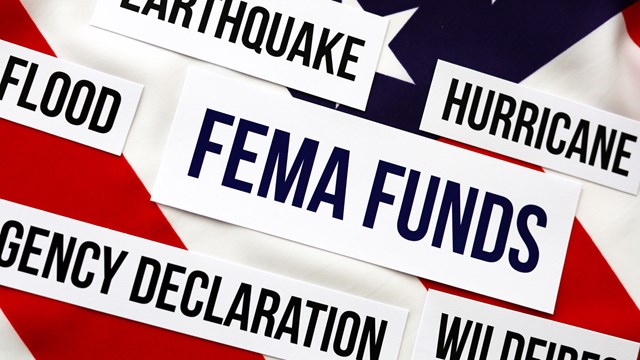
As the autumn leaves change and begin to fall, our thoughts invariably turn to the completion of the hurricane season and the arrival of winter. We are also reminded on an almost daily basis of the lasting results of Hurricane Sandy, or as some would call it “Superstorm Sandy.” Regardless of that storm’s title, the effects on property and human lives are ever present in the Northeast, even a full year later.
Superstorm Sandy, which caused more than $22 billion in insured losses as the second-costliest hurricane in U.S. history, occurred in late October 2012. As such, whether you live in one of the five boroughs or in the suburbs, or whether you live in a high-rise, condominium, town home or single family home, you can protect many aspects of your association by preparing in advance.
Review All Coverage
You can’t purchase insurance after a disaster takes place. However, there are many steps that you can and should take in advance to be certain that you have the proper coverage:
• The board of the common interest realty association (CIRA) should have a member who is responsible for reviewing CIRA’s insurance coverage.
• Meet with the CIRA’s insurance broker/agent on an annual basis.
• Understand what coverage you have (e.g. property, flood, wind, liability, directors and officers insurance, workers compensation, etc.).
• Understand the coverage details, limitations and deductibles.
• Be sure that all the CIRA’s insurable assets are covered.
• Be sure that your coverage is in accordance with the CIRA’s governing documents (e.g. offering plan, proprietary lease, bylaws, house rules, etc.).
• Review the values of the CIRA’s assets annually and compare them with the policy limitations.
• Maintain detailed files to document additions to the CIRA’s property, including vendor invoices and pictures.
• Provide all board members with a summary of the CIRA’s insurance coverage annually and include contact information in the event of a loss.
• Review Your Physical Plant, Site Plan & Amenities
• It is commonplace across the multi-family housing industry that a CIRA’s property be inspected periodically to identify conditions that need repairs and maintenance. This inspection can be made by the CIRA’s property management company, CIRA employees or by a committee of board members and unit owners with professional experience (e.g. engineer), or by a combination of these persons. Storm preparedness should be part of these periodic inspections.
However, it is imperative in the event of an imminent severe weather event that the CIRA inspect all of its facilities for conditions that could lead to potential increased property damage and risks to human life. In this regard, the following are a few suggestions of preventative measures:
• Secure loose objects (e.g. pool furniture, barbeques, recreational equipment, etc.); Examine landscaping and trees for dangerous conditions; Examine roofs for damage, leaks and dangerous conditions; Examine leaders and gutters for blockages; Examine storm drains and the CIRA’s water run-off system for proper functionality; and, Ascertain if certain areas are prone to flooding.
“An ounce of prevention is worth a pound of cure” is an idiom that has specific relevance to storm preparedness. Upon completion of the above pre-storm inspection procedures, CIRAs should take the necessary steps to alleviate all conditions that could exacerbate storm damage.
Review Entrances, Exits, Stairways and Gatehouses
Examine entrances, exits, stairways and gatehouses for dangerous conditions and take steps to alleviate them pre-storm. Review these amenities for potential operational functionality both during and after the pending severe weather event. For example:
• Do you have backup power and emergency lighting for the entrances /exits/stairways and gatehouses?
• If there is a power outage, does your gate system default to the "open" position?
• Do you have a back-up power supply and has it been inspected, as well as prepared for the severe weather event?
Other Measures
Check on Fiduciary Bonds. CIRAs who use payroll service providers to pay their employees should ask the provider if it has a fiduciary bond in place. The bond could protect the CIRA in the event of default by the payroll service provider.
Create a Backup Set of Records Electronically. The board or its managing agent should keep a set of backup records in a secure safe place at all times. The backup should be stored away from the original set (i.e., off-site). Records such as bank statements, tax returns, insurance policies are often stored electronically, but scanning and saving to a backup storage device is recommended. The backup information should be updated at least semi-annually.
Have an Emergency Response Plan. Form an emergency response committee consisting of board members and unit owners. Establish specific roles for each committee member, including: (a) one or more persons to check on all residents, especially the elderly, (b) communication coordinator, (c) inspection of the CIRAs’ property, and (d) public relations during the disaster’s aftermath. All committee members should be provided with multiple contact information for every committee member. In addition, this committee should also have contact information for the Association’s managing agent and key vendors who will be responsible for restoration after the event has ended.
Life-Sustaining Equipment. If your community/building has residents who rely on life-sustaining equipment, ask your utility company if the medical equipment qualifies you to be listed as a life-sustaining equipment customer or if you are eligible to register for a priority power restoration program.
Update Emergency Plans. Emergency plans should be reviewed annually. When CIRAs hire new employees or when a company or organization changes functions, plans should be updated accordingly and employees should be informed of the changes.
In Conclusion…
This article is only meant to highlight some of the steps that a CIRA can take in order to prepare for a severe weather event or other natural disaster. In addition there is also a significant amount of valuable preparedness information that can be obtained from the following organizations:
Contact FEMA at (800) 621-FEMA (3362) http://www.fema.gov. In Nassau County, go to http://www.nassaucountyny.gov. For NYC Government, go to http://www.nyc.gov/html/oem/html/get_prepared/ready.shtml. For NYS Government: go to http://www.ny.gov. Red Cross: go to http://www.redcross.org/ny/new-york. In Suffolk County, go to http://www.suffolkcountyny.gov.
While you cannot control Mother Nature and prevent natural disasters, you can be proactive and take the necessary steps to protect your Association before, during and after an event.
Woody Goldstein, CPA is the senior manager at MayerMeinberg LLP, an accounting firm with offices in Syosset, Long Island and Manhattan.






Leave a Comment